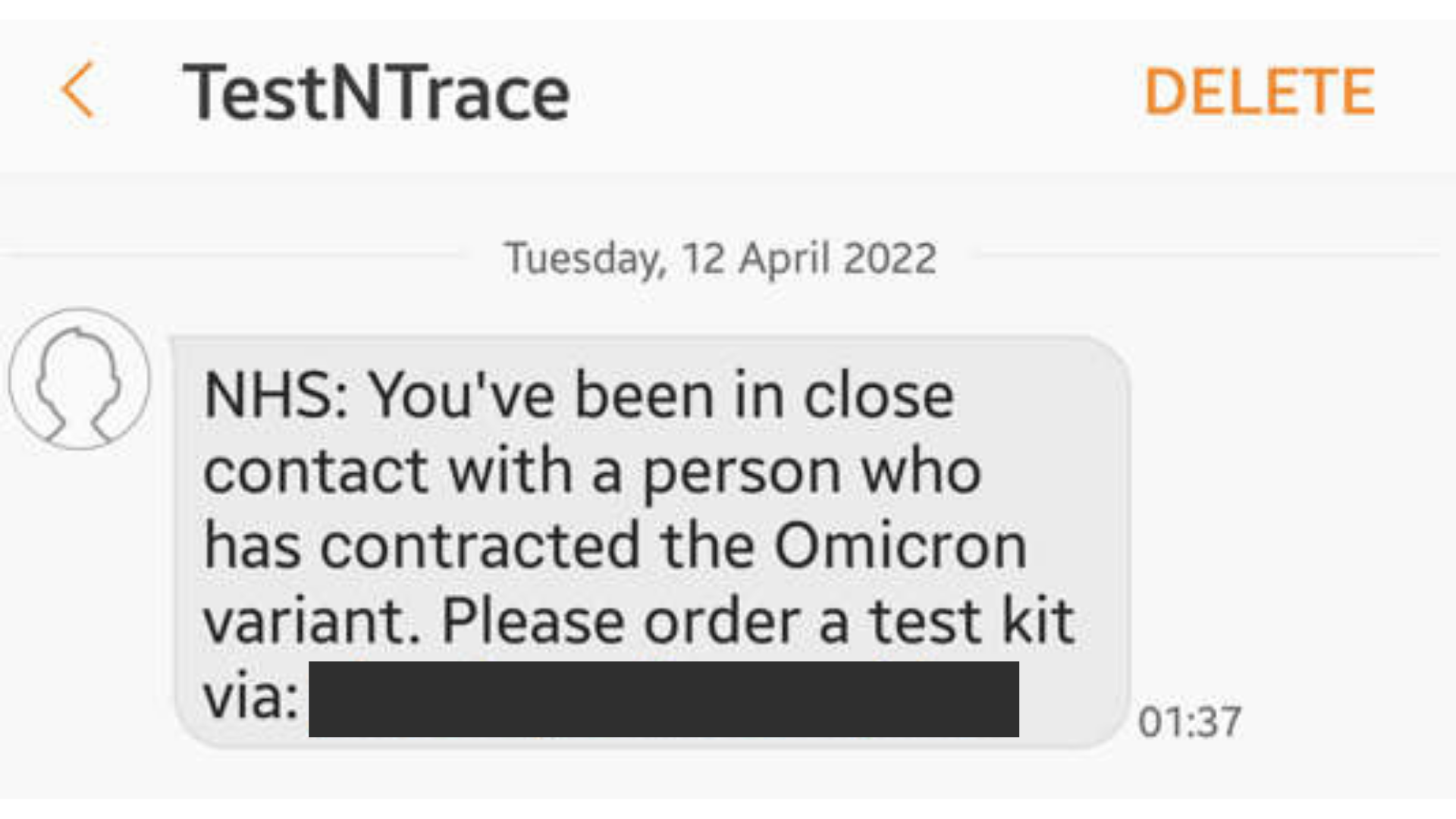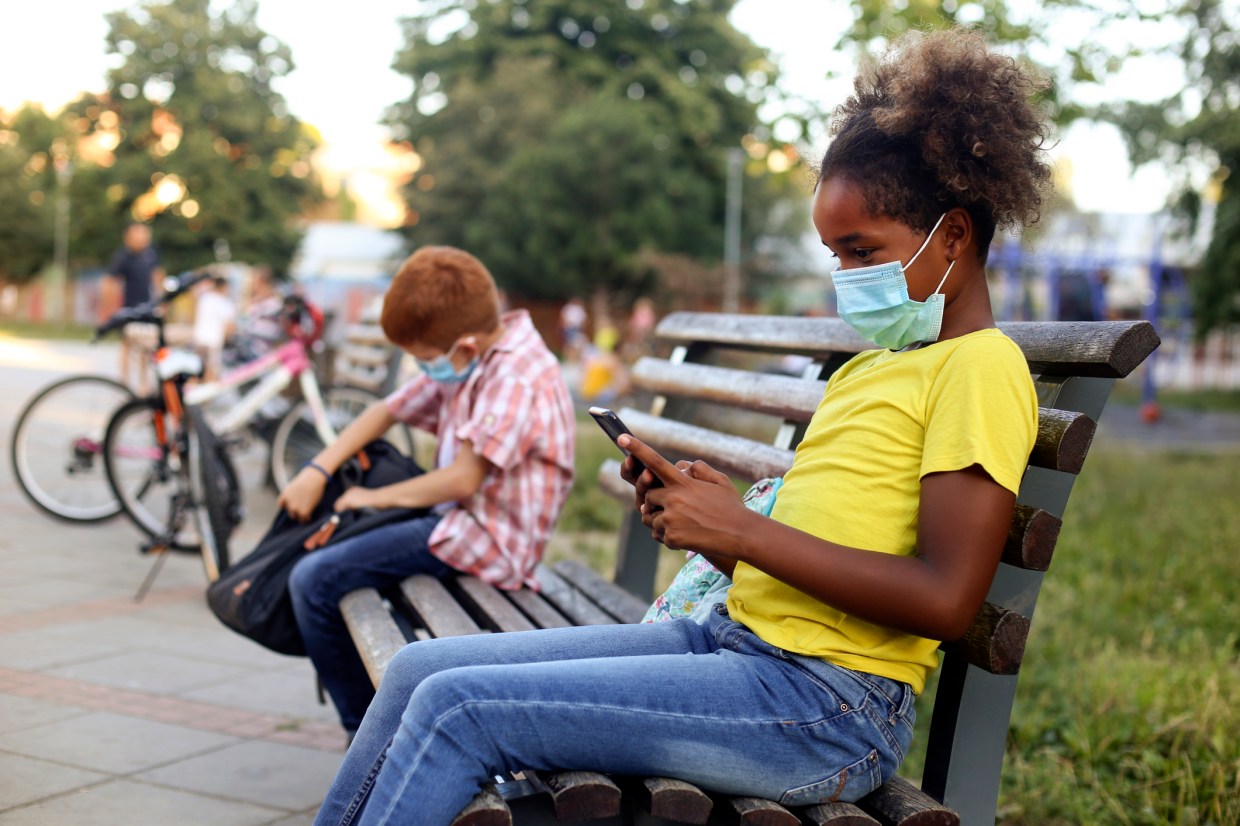Yesterday I received an SMS from “TestNTrace”, with the message resembling an official NHS communication:

The text reads as follows:
NHS: You’ve been in close contact with a person who has contracted the Omicron variant. Please order a test kit via: [URL redacted]
Well, that’s an alarming thing to wake up to. However, not everything is as it first seems.
Health and (security) safety concerns
The first red-flag is that this isn’t an official NHS URL. Additionally, there’s no explanation as to how or why they know I’ve “been in close contact” with somebody. Nevertheless, people will take this message at face value.
Receiving this will be especially concerning for anyone with specific health risks related to COVID-19 exposure. There’s also a few reasons as to why this kind of spam message may prove successful in the current climate.
Testing times for…tests
It’s becoming increasingly difficult to obtain PCR tests in the UK. The rules have changed, leading to frequent delays and issues. Previously you could obtain free tests as and when you needed them. Now, tests are no longer free. As per the official guidance page:
If you’re in Scotland or Northern Ireland, you might be eligible to get a free polymerase chain reaction (PCR) test to check if you have coronavirus (COVID-19).
In England or Wales you can no longer get free PCR tests to check if you have COVID-19.
There are some exemptions, but they’re few and far between.
What this means in practice is a glorious opportunity for scammers and fakers to make even more money off the back of the pandemic. Scams targeting people with coronavirus themes are bad enough at the best of times. When you can’t even get hold of a test, it’s particularly ghoulish.
Digging into the website
The landing page resembles a standard UKGOV NHS page related to the pandemic. The links also all lead to genuine NHS sites and information portals.

It reads as follows:
“Order (COVID-19) Omicron PCR test kit
The UK has decided to deploy test kits in response to the risks of the Omicron variant. COVID-19 cases have soared by their highest number since the start of the pandemic as the Omicron variant continues to spread rapidly.
Due to rising cases among fully vaccinated patients, research has shown that it is still possible to catch and spread COVID-19 even if you are fully vaccinated.
Order your (COVID-19) Omicron PCR test kit below.
Information:
PCR tests are mandatory and failure to register could lead to movement restrictions and compulsory isolation.
Note: PCR test kits are free, you will only have to pay £0.99 for postage of the kit.“
That’s a very long way of saying “please give us £0.99”. However, there’s a lot of clues in that block of text to suggest you shouldn’t give them a thing.
Of movement restrictions and compulsory isolation
“PCR tests are mandatory and failure to register could lead to movement restrictions and compulsory isolation” is quite the statement, designed to encourage people throwing money their way as fast as they can.
Confirmatory PCR tests are no longer required. You’re also no longer required by lawin the UK to stay at home and isolate if infected. The Test and Trace contact service is now closed. I couldn’t even begin to tell you what the supposed movement restrictions are all about.
Clearly, we’re dealing with something here which isn’t exactly reflecting reality as it currently stands. If we proceed to the next page anyway, the site asks for a range of personal information.
Personal details, and payment for postage
The site asks for name, DOB, email, phone, and address.

The follow up page asks for payment details.

Avoiding the PCR payment rush
If you need to obtain test kits, your best option is likely to be local pharmacies and supermarkets. Random texts and emails which lead to sites other than nhs.uk should be treated with caution, especially when tied to requests for payment.
Even if they claim the kits are free, they’ll likely ask for postage costs. All this, on top of how they magically know you’ve come into contact with somebody who has COVID-19 in the first place. While there may well be delays and low supplies in trusted stores, it’s still a much safer option than handing your payment details and personal information to random websites.
This is one text you can happily block and report. If you need a test at short notice, answering random SMS spam is definitely not the way to get one.










